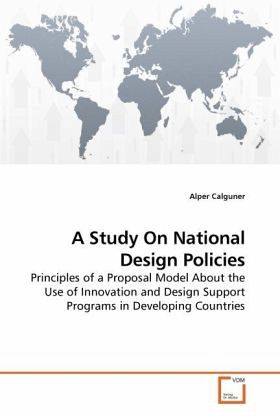
A Study On National Design Policies
Principles of a Proposal Model About the Use of Innovation and Design Support Programs in Developing Countries
Versandkostenfrei!
Versandfertig in 6-10 Tagen
39,99 €
inkl. MwSt.

PAYBACK Punkte
20 °P sammeln!
The performances of countries in achieving their economical and social objectives in the 21th century, are substantially determined by the success rates on transforming their traditional economies into design focused innovation economies. The science and technology oriented policies, which are developed and applied for accommodating economical development and social prosperity, evolved into Innovation Policies and National Innovation Systems in the course of time. In this evolution process, while the importance of innovation is understood and implemented on the policy structures, the immediate...
The performances of countries in achieving their economical and social objectives in the 21th century, are substantially determined by the success rates on transforming their traditional economies into design focused innovation economies. The science and technology oriented policies, which are developed and applied for accommodating economical development and social prosperity, evolved into Innovation Policies and National Innovation Systems in the course of time. In this evolution process, while the importance of innovation is understood and implemented on the policy structures, the immediate support to design activity which is an important step placing at the center of innovation process, has not been achieved in most of developing countries. Analyzing certain countries that have strengthened their industrial or technological infrastructure by design awareness, experienced significant economical and social improvements by building up a new infrastructure, and developed specialized design support programmes; main principles of common inferences and support programmes have been formulated.












